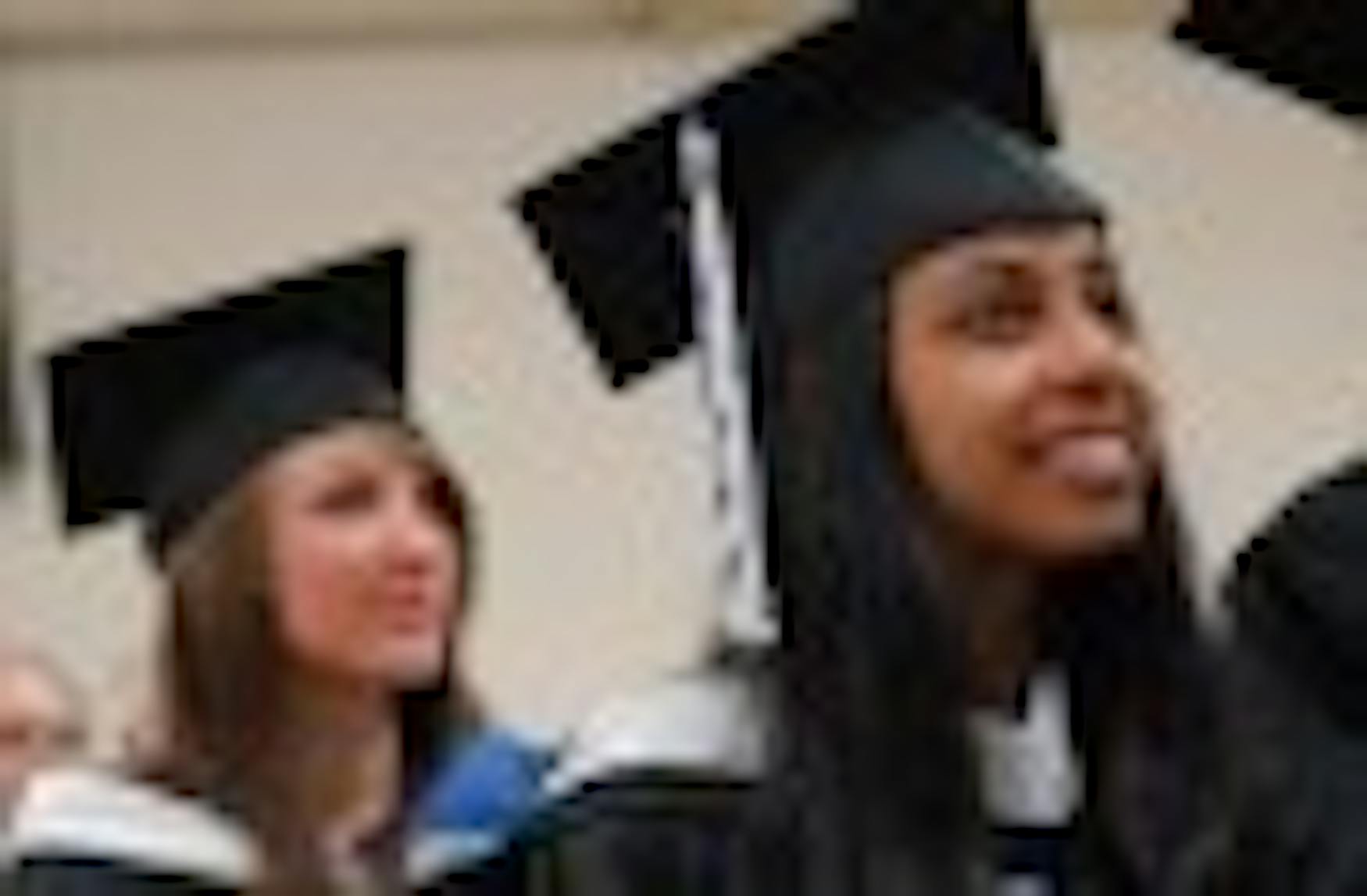Friedman shares lessons from the reporting field
A New York Times foreign affairs columnist who has garnered three Pulitzer Prizes for his news coverage and commentary on the Middle East delivered the keynote address at the 56th commencement ceremony Sunday in Gosman Sports and Convocation Center.Thomas Friedman '75, a member of the Brandeis Board of Trustees, stepped in after the University's first choice, David Halberstam, also a Pulitzer Prize-winning journalist, died in a car accident in Menlo Park, Ca. last month. He was 73.
"It's a treat, an honor and an obligation to be here today," Friedman said, addressing the 809 bachelor, 538 master and 93 Ph.D. recipients and their families.
Friedman himself graduated from Brandeis summa cum laude with a major in Mediterranean Studies.
Making fond reference to Halberstam in his speech, Friedman described him as "a true hero of mine . the best and the brightest in my business."
He divided his speech into three parts, "to cover all my bases; one brutal, one advisory and one sentimental."
His brutal advice included words from Charles Sykes, the author of Dumbing Down Our Kids. "The world
In a fast-paced and engaging tone, Friedman entertained the packed crowd with stories about how he got into journalism, and his experiences reporting in London and in Lebanon during the war in the early '80s.
"Do what you love," he said. "One-hundred percent of people who do what they love, love what they do."
This philosophy paid off for Friedman, whose interest in journalism was first sparked by his 10th grade teacher.
"She taught me that a journalist should always wear a tie, never use foul words and start your day reading The New York Times," he said. "By the time 10th grade was over I knew what I loved."
He advised the graduating class to follow their gut in a world that is flattening, meaning that because of globalization, industrialized countries are finding business competitors in countries they hadn't before. Friedman wrote about this topic in his 2005 bestselling book The World is Flat.
"The flatter the world the more important it is that you do what you love," he said.
He described the Internet's virtually universal impact in the flattening world. Anyone can be a filmmaker now by using their cell phone cameras or by posting short films on YouTube. Anyone is vulnerable to what is written about them on sites like Myspace and Facebook, he said.
"The Internet is becoming a kind of permanent record," he said. A Facebook message becomes "a digital footprint" that won't wash away.
He urged students to exercise good judgment on the Internet.
After working under pressure as a reporter for UPI and The New York Times, Friedman said he became a Times columnist and has enjoyed a less a stressful experience.
"If I've had any success as a journalist it's because I've enjoyed the journey as much as the destination," he said.
One anecdote that was particularly well-received by the audience was Friedman's account covering his first news assignment for UPI: a student takeover of the Iranian Embassy in London. After gathering the news, he stepped into a nearby phone booth to call his office with his reporting. Needing to search for a detail in his notes, Friedman asked the next reporter waiting in line at the booth to "hold the phone while I check something."
This proved to be an error, as the reporter promptly hung up the phone to make his own call. Friedman then heard two words he said he'll never forget: "Sorry mate."
The lessons here: "Never ask your competition to hold the phone for you," and "experience is what you get from not having it when you needed it," he said.
First and foremost, the key to journalism is to be a keen listener, Friedman explained, because it shows the speaker respect. This extends beyond the field of journalism and to all people, whether it's a secretary or a top official. "If you really want to get through to people, the best way is to open your ears."
Stephen Kay, the chair of the Board of Trustees, touched on a similar theme in his speech, advising students to be open to different viewpoints. Students showed a great deal of "professionalism and maturity" when former United States President Jimmy Carter spoke last January, he said, because they were willing to listen to another side of the Israeli-Palestinian conflict. "When you're talking, you're not listening," he said.
Friedman, who has covered a range of subjects in his expansive career, including the Middle East, the White House, and most recently energy and the environment, said journalism has made him a "lifelong learner," something he said he hopes each Brandeis graduate will be.
"It's the best survival skill you can take away from here," he said.
Friedman closed with a simple piece of advice that he said he offers in every commencement speech. "Call your mother," he urged. "You'll always be glad you did."
Reinharz presented honorary degrees to Joyce Carol Oates, a prominent American author, Irwin Cotler, a member of the Canadian Parliament, Scientist Judah Folkman and Daniel Liebskind, an internationally acclaimed architect.



Please note All comments are eligible for publication in The Justice.